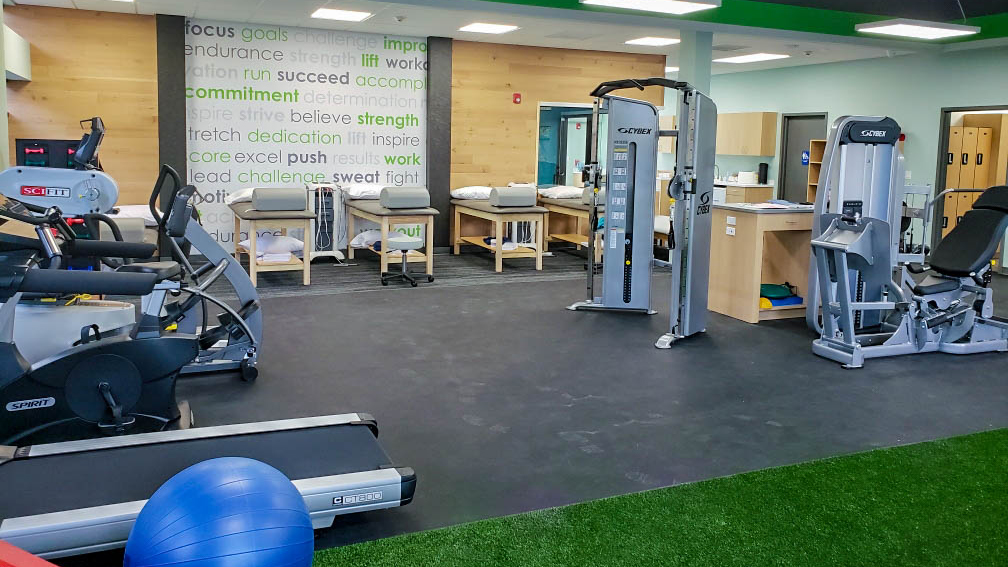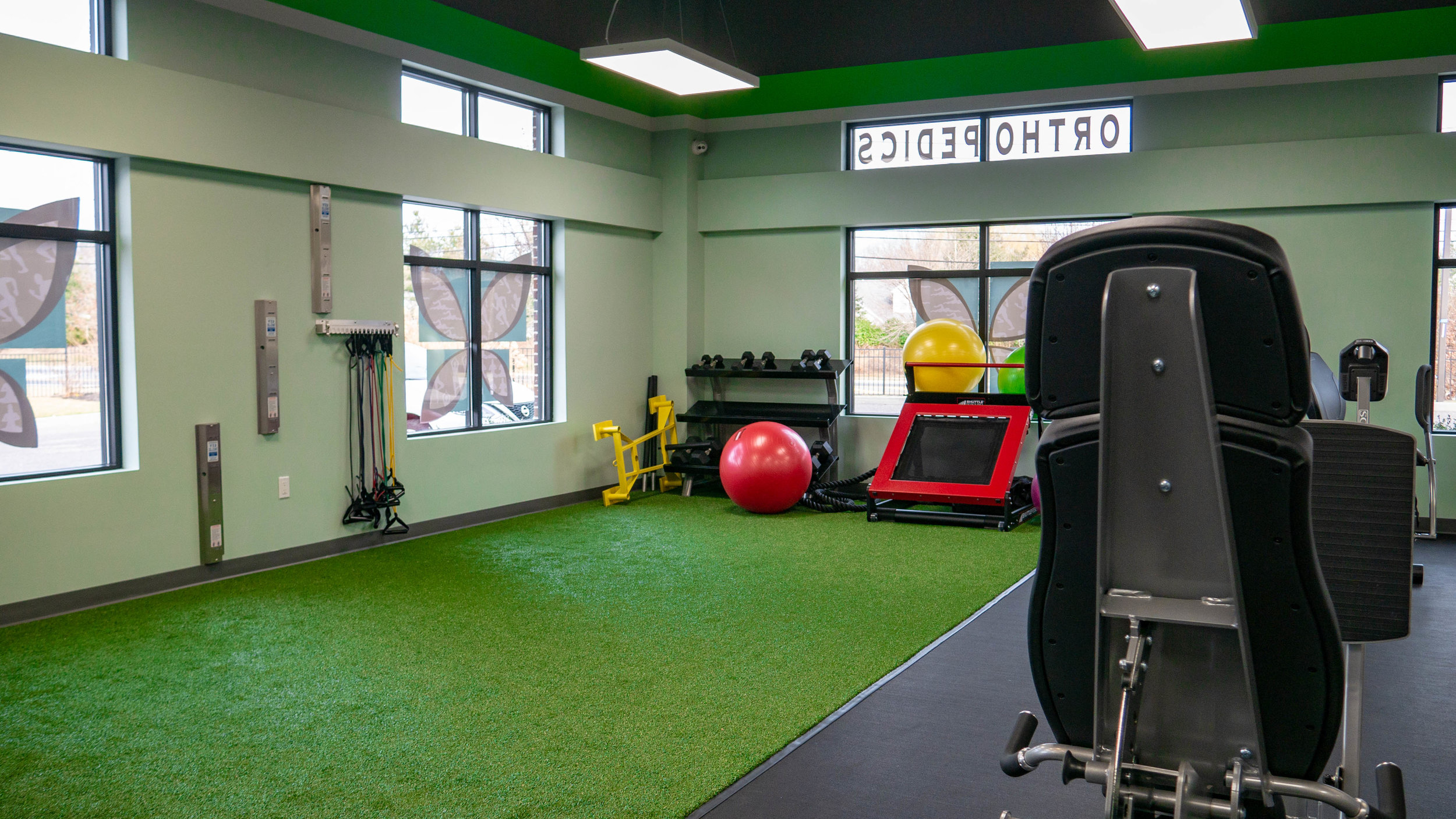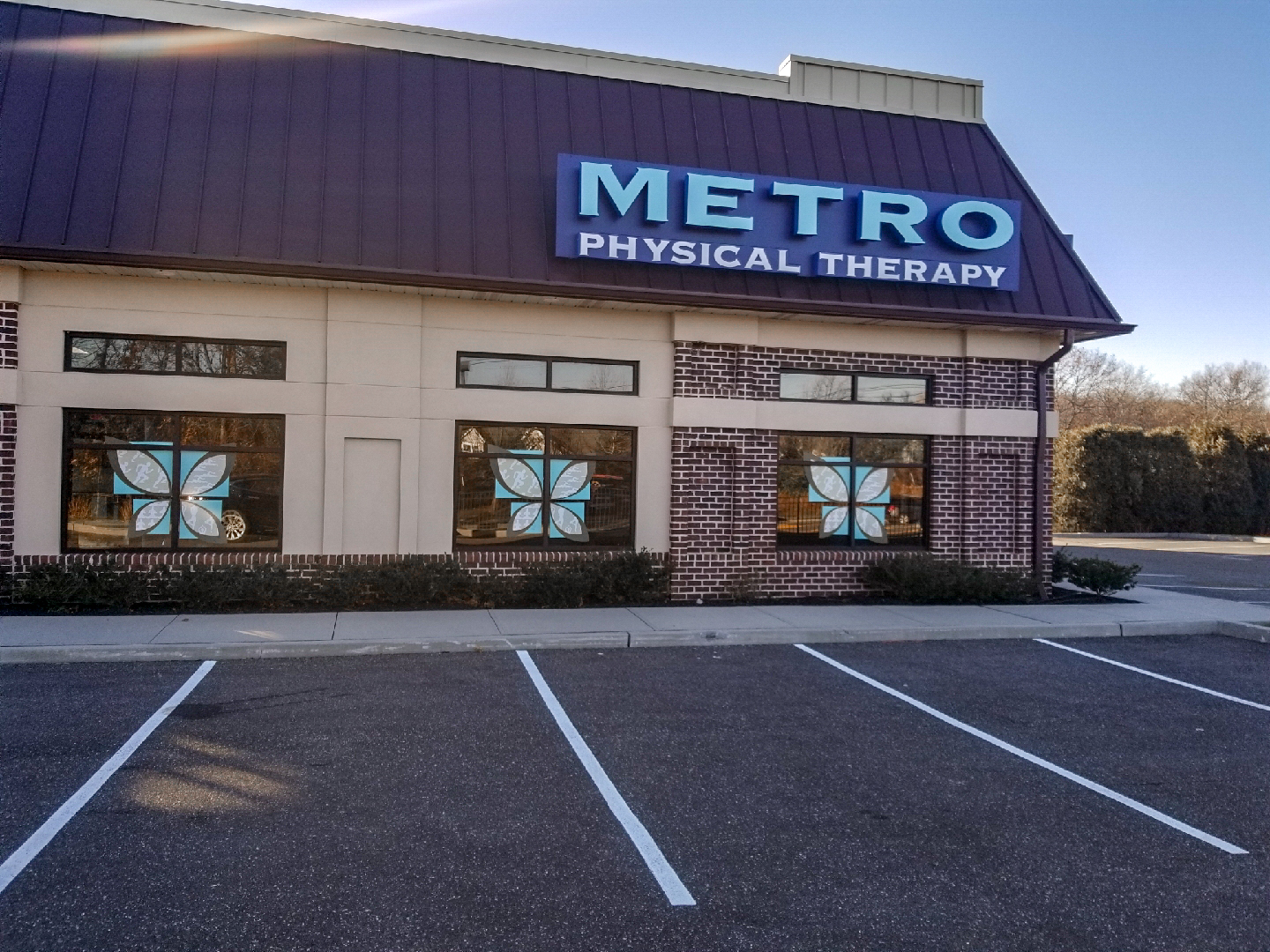PHYSICAL THERAPY IN PORT JEFFERSON STATION, NY
Metro Physical & Aquatic Therapy in Port Jefferson Station is a leading provider of Physical Therapy in New York and one of our 50+ Long Island locations.
1500 NY-112 Building 9
Port Jefferson Station, NY 11776
Phone: 631.849.6688
Fax: 631-849-6689
Email: info@metropt.com
OFFICE HOURS
Monday- 7am-8pm
Tuesday- 7am-8pm
Wednesday- 7am-8pm
Thursday- 7am-8pm
Friday- 7am-7pm
Saturday- 8am-12pm
Sunday- CLOSED




Services Available at Port Jefferson Station:
Click Sections to Expand
-
At Metro Physical & Aquatic Therapy you’ll find caring, skilled physical therapists with specialized training in orthopedic manual therapy. Our therapists have the background and experience to treat all musculoskeletal injuries.
RANGE OF EXPERTISE:
• Trigger Point Therapy
• Kinesio Tape
• Sports Injuries & Concussion Interventions
• Sports Conditioning -
Occupational therapists are function experts! We conduct client-centered activity analysis to break down daily living tasks to identify and work on an aspect that leads to an inability or difficulty. By identifying these key components, we create a treatment catered to you to promote independence.
Occupational Therapists are specialists in the neurological population and fall prevention tasks. Our ability to analyze gait pattern, focus on safety hazards in a patient's environment, and recommend the necessary equipment or modified techniques is what makes us unique!
Also, occupational therapists are experts with the UE conditions, whether it's post-op or conservative treatment. Occupational therapists also work with pediatrics focusing on sensory deficits, fine motor coordination, emotional regulation, postural control, and all other deficits that would impact the child's participation in normal play/social activities and daily living tasks. We also offer custom splinting in most of our locations.
If you have difficulties with the following see an OT today:
• Multiple falls in the home or community/overall unsteadiness on feet
• Visual deficits/vision loss impacting function with daily tasks
• Difficulty with daily living tasks (ex: dressing, bathing, meal prep, grocery shopping, leisure tasks)
• Upper extremity injuries/surgeries
• Home safety concerns
• Getting up/down from a low seat/couch or from the floor
• Sensory integration deficits
• Emotional regulation techniques
• Static Progressive Splinting Available -
The field of Speech-Language Pathology focuses on many more modalities than just speech. The two main domains that fall within the scope of practice are communication and swallowing including speech production, fluency, language, cognition, voice, resonance, feeding, swallowing and hearing for infants, children and adults.
The main goal of Speech-Language Therapy is to improve ones ability to communicate and/or swallow effectively to reduce frustrations and enhance quality of life.
Speech-Language Pathologists (SLPs) provide services to individuals with a wide variety of speech, language, and swallowing differences and disorders within eight service delivery domains that range in function from completely intact to completely compromised.
The eight service delivery domains include:
• Collaboration
• Counseling
• Prevention and Wellness
• Screening
• Assessment
• Treatment
• Modalities, Technology, and Instrumentation
• Population and SystemsSpeech-Language Pathology is a dynamic profession, and the scope of our practice frequently overlaps, especially in today’s society where health care, education, and other environments are consistently evolving. Therefore, SLPs in various settings work collaboratively with other school or health care professionals to make sound decisions for the benefit of individuals with communication and swallowing disorders.
-
When it comes to issues of balance, our therapists are equipped with the skills needed to detect and treat vestibular disorders. These problems are believed to stem from a viral infection of the inner ear, swelling around the vestibulocochlear nerve or an infection in another area of the body.
Balance therapy and rehabilitation at Metro Physical and Aquatic Therapy can address these symptoms through traditional holistic practices. Our therapists create a safe environment and implement personalized programs that bring mobility and balance back into your life.
Symptoms of vestibular disorders include:
• Vertigo
• Dizziness
• Visual disturbance and imbalance
• Nausea
• Lack of concentration and fatigue -
Return To Play - RTP - is a 5 step progression of activity to ensure safe return to pre-concussion levels. Treatment varies case-by-case and our physical therapists will work closely with your physician to determine individual needs.
It’s important to note that RTP treatment has to be approved by a Physician.
However, if your physician has not yet cleared you for RTP we can still help!
Through guided therapy with symptom tracking we offer:
• Balance Therapy
• Coordination Enhancing
• Vestibular Therapy
• Buffalo Concussion Test
• A contained and guided exercise to determine what level of aerobic exercise is safe.In the event you suffer from long term post-concussive syndrome we have a variety of treatments following an evaluation:
• Our Speech-Language Pathologists(SLP) specialize in treatments designed to facilitate neuroplasticity to address cognitive-linguistic deficits: attention to tasks, working memory, recall and short-term memory, problem-solving, executive functioning, and word-finding.• Our Occupational Therapists can assist with any visual perceptual issues, spatial relation, visual tracking, saccades, visual scanning and divergence/convergence. This is all especially helpful if the patient has a quadrant issue, heminopsia, nystagmus or etc.
-
Pelvic floor therapy is physical therapy specifically for the pelvic floor muscles. The pelvic muscles are the group of muscles that run from pubic bone to tailbone and they function to help control bladder, bowel and sexual function. It also plays a big role in supporting your spine, organs, core, and hips.
Just like regular muscles, pelvic floor muscles can be tight or weak and can cause discomfort. In patients with dysfunction in their pelvic floor it can present as sharp pain, burning, achiness, nerve pain, pressure, increased sensitivity, in areas such as the vagina, vulva, urethra, clitoris, penis, testicles, rectum, lower abdominal area affecting bladder, bowel, and sexual function. Dysfunction in the pelvic floor can also contribute to symptoms like urinary urgency/frequency, urinary incontinence, fecal incontinence, constipation.
-
A neurologically-trained physical therapist specializes in the evaluation and treatment of individuals with movement problems related to disease or injury of the nervous system.
Therapists who specialize in neurological therapy treat a wide range of patients who may have one of the following conditions:
• Stroke
• Spinal cord injury
• Brain injury
• Parkinson's disease
• Multiple sclerosis
• Central Vestibular Disorders
• Concussions
• Cerebellar Ataxia
• Adult Cerebral Palsy
• Alzheimer’s
• Peripheral NeuropathyIf you suffer from one of the following, Treatment Options Include:
• Manual Techniques: PNF/ Stretching
• Neuromuscular Electrical Stimulation
• Education of home and orthotic modification
• Assistive device education
• Functional Training (Stairs, Bed Mobility, Transfers)
• LSVT BIG
• Pilates for Neurological Conditions
• Intensive Treadmill Training
• Balance Training
• Gaze Stability/Habituation Techniques
• Acupuncture -
Physical development is a crucial aspect of a child’s well-being. Providing your child with an expert therapy treatment allows him or her to regain control of movement while he or she works through the customized treatment plan.
By focusing on the sensory systems and neuromuscular and cognitive functions, children receive care that maximizes therapeutic and long-term benefits. Our trained therapists are able to treat youngsters who have been diagnosed with:
• Torticollis
• Autism
• Cerebral Palsy
• Erb’s Palsy
• Down Syndrome
• Gross Motor Delays
• Muscular Dystrophy
• Orthopedic Conditions
• Spina Bifida
• Deficiencies in Gait and Balance
• Impairments in Strength and Range of Motion
PORT JEFFERSON THERAPISTS:
Regional Director
Craig Davidson, PT, DPT, AIB-VRC
Port Jefferson Clinical Director
Anthony Wenzel, PT, DPT













